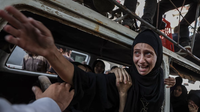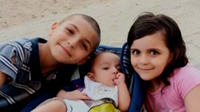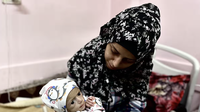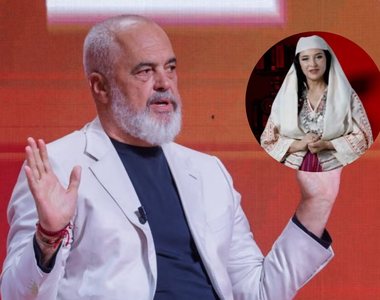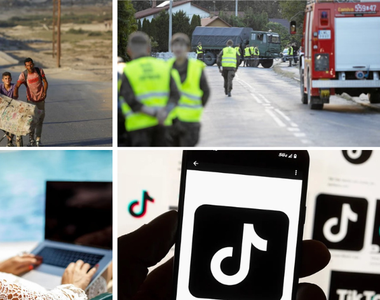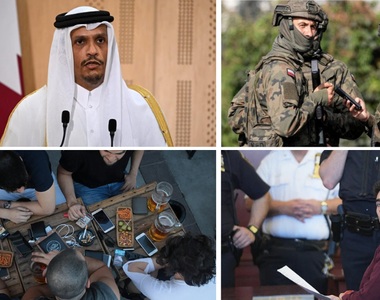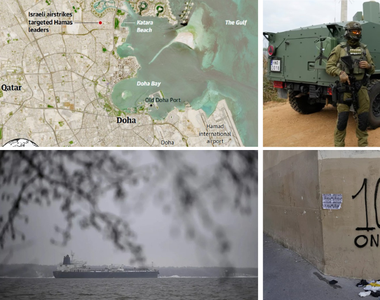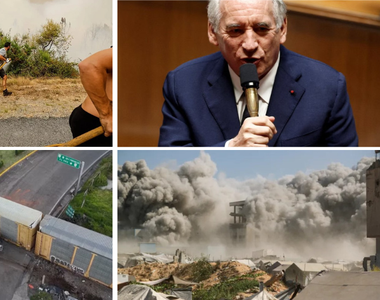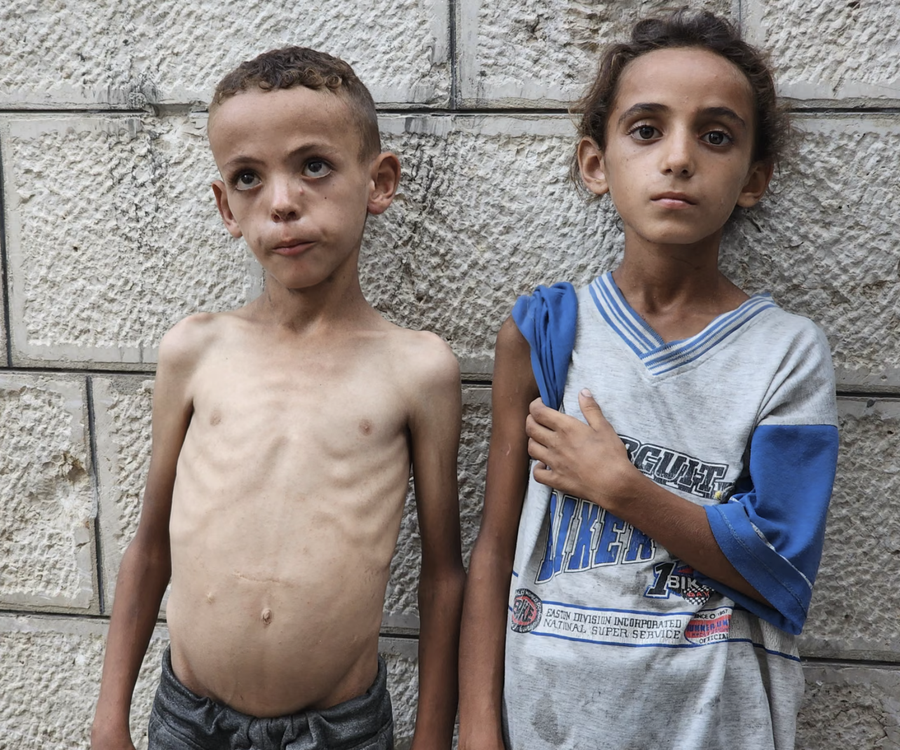
Gaza has never been hungrier, despite repeated warnings of a famine, and it has been almost two years since Israel committed genocide in the country. In the past three days alone, health officials have recorded 43 deaths from starvation; before that, the total number was 68.
Faiza Abdul Rahman, who has stayed in Gaza City throughout the war, says that even during the strictest food controls last year, the situation was not that bad.
"We've experienced hunger before, but never like this," she said. "This is the most difficult phase we've ever gone through."
Testimony from local residents and doctors, as well as data from the Israeli government, the Gaza Humanitarian Foundation, the United Nations and aid organizations, shows that food is running out. Empty shelves are reflected in frightening prices, and flour is being sold for more than 30 times its market price at the beginning of the year.
Neither money nor influential employers can protect Palestinians anymore.
"Humanitarian organizations are seeing colleagues and partners disappearing before their eyes," more than 100 aid organizations working in Gaza, including MSF, Save the Children and Oxfam, warned this week.
The AFP journalists' union said on Monday that for the first time in the agency's history, there is a risk of losing a colleague to hunger.
On Wednesday, the director of the World Health Organization, Tedros Adhanom Ghebreyesus, said that a "large portion" of Gaza's population is suffering from hunger.
"I don't know what else to call it, except a mass famine and it's man-made," he said.
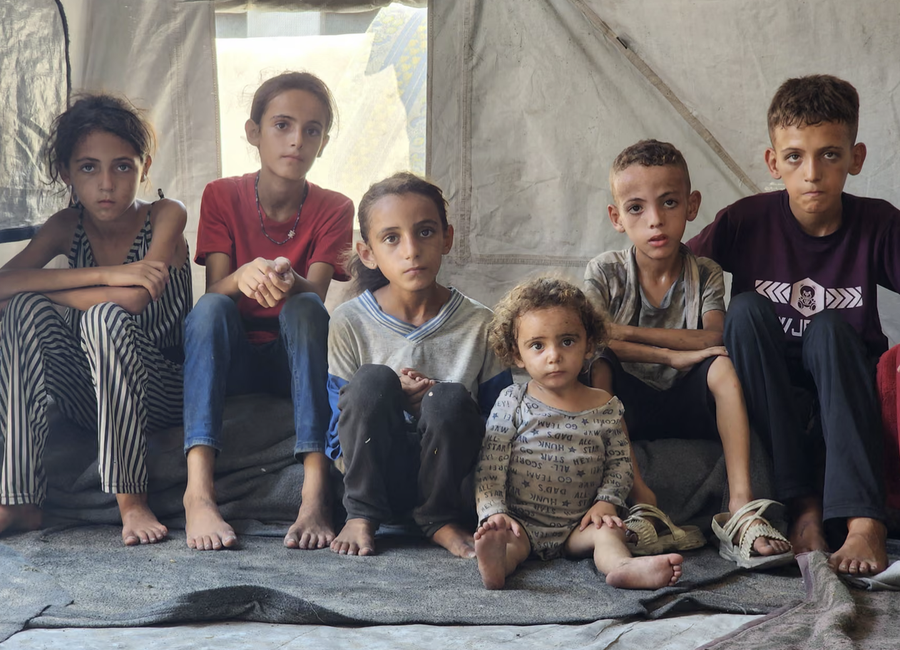
For months, Israel has blocked food deliveries. The amount allowed since early March is far less than the minimum survival rations for the 2.1 million residents, who are already weakened by prolonged food shortages and repeated displacement.
"For almost two years, the children here have suffered from hunger. Even on days when they felt full, it's not just a matter of satiety, but of getting the foods and vitamins that the body needs," said pediatrician Farwana.
Years of malnutrition make them more susceptible to other diseases, and their low immunity is further aggravated by the extreme shortage of basic medicines, which have also been blocked by Israel.
“I often feel devastated because the child needs something so simple to survive and we just can’t provide it,” he said. Three severely malnourished patients died this week in intensive care; one of them a young girl who might have survived if doctors had had intravenous potassium, a basic medication now impossible to obtain in Gaza.
“We tried to give her oral alternatives, but because of the malnutrition and the complications it caused, she didn't absorb anything. These cases always haunt me. They never leave my mind. This child could have been returned to the family and had a normal life. But, because one simple thing was missing, she didn't survive.”
Israel imposed a total blockade on Gaza on March 2. When Prime Minister Benjamin Netanyahu lifted it on May 19, he claimed the government was acting to avoid a “hunger crisis,” after some of Israel’s strongest allies told him they would no longer tolerate the sight of starvation.
In reality, the Israeli government simply changed strategy, dragging out the famine crisis with minimal aid deliveries so that Gaza's descent into total starvation would occur more slowly.
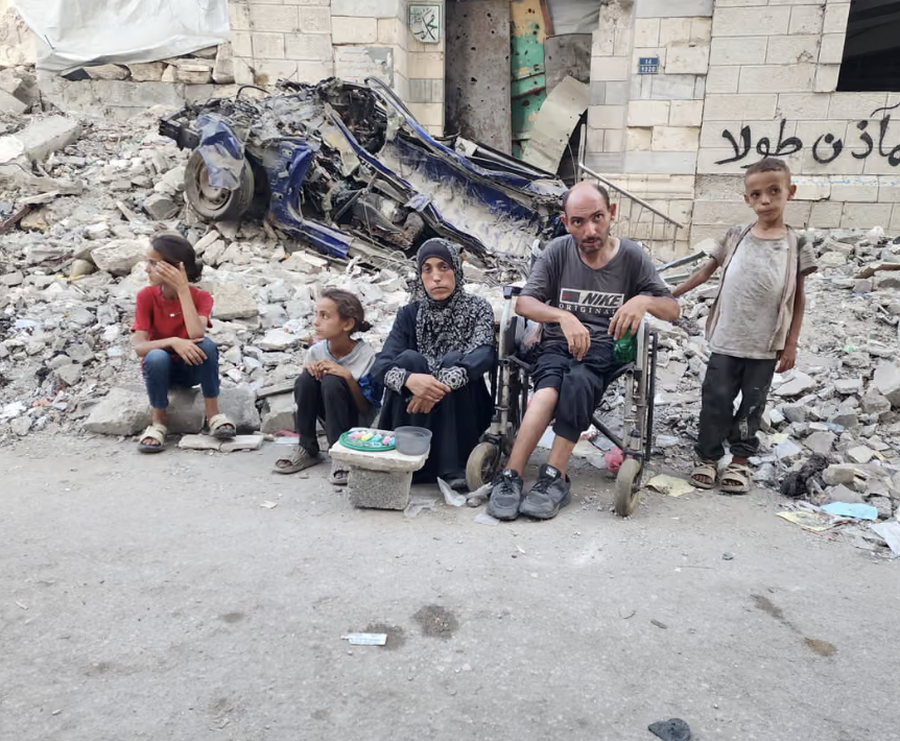
The Israeli government announced plans to channel all aid through a US-backed organization that operates four militarized distribution points. Hundreds of people have been killed trying to get food at these points, which Palestinians describe as “death traps” and which distribute aid that meets only a fraction of Gaza’s needs.
As of July 22, the GHF had been operating for 58 days, but the food it had brought in would be enough for less than two weeks for the entire population of Gaza even if distributed evenly.
On Tuesday, Umm Youssef al-Khalidi was preparing to try her luck at a GHF distribution center for the first time. She had avoided them for months because her youngest child is two years old, her oldest is 13, and her husband is paralyzed and in a wheelchair.
“We are quenching our hunger with water,” she said. “The fear for my family is greater than the fear for myself. I am afraid that something will happen to me and I will leave them without anyone to take care of them.”
But the family hadn't eaten for four days last week, and when they broke their fast, eight people shared a bag of rice and two potatoes that an unknown passerby had given them.
The children were brilliant students before the war, always winning scholarships. Now, they spend their days sitting on the street near a bombed-out mosque in the al-Wahda neighborhood of Gaza City, where the girls try to sell bracelets instead of begging.
Today, there is little demand for cheap jewelry in Gaza, and while a passerby might feel sorry for the group of emaciated children with dirty faces and torn clothes, high prices mean that very little food can be purchased.
“My children have become skeletons, skin and bones,” said Khalidi, adding: “Even the slightest effort makes them dizzy. They sit back, begging for food and I have nothing to give them. I can’t lie and say I will bring you something when I know I won’t be able to. It is painful to see them suffering and their health deteriorates with every day that goes by without food.”
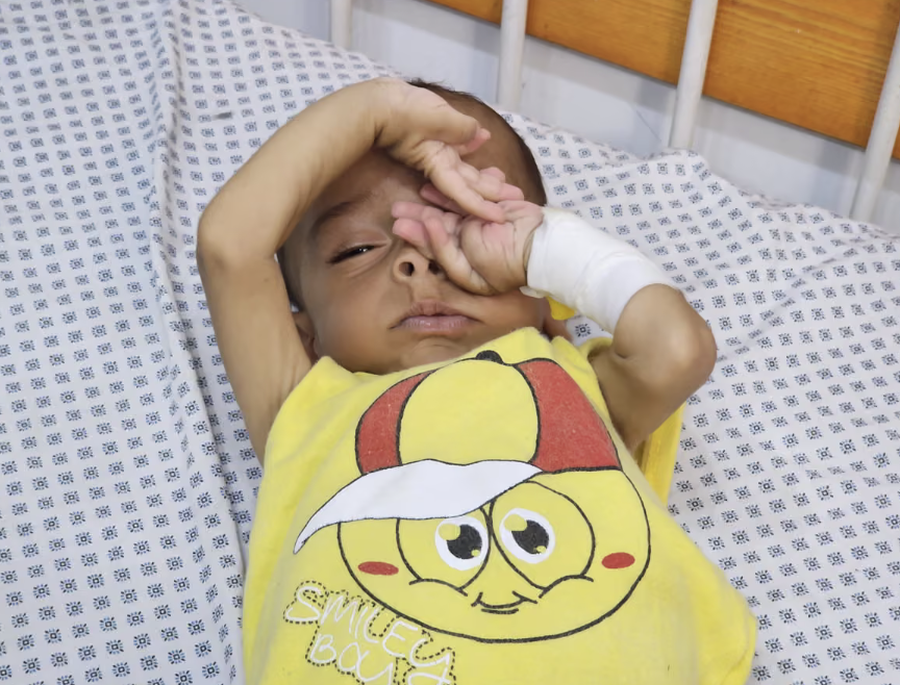
Another particularly painful case is that of Mohammed, dressed in a yellow jumpsuit with a smiley emoji on his T-shirt, a cruel irony in the Gaza hospital. He spends most of the day crying from hunger, or biting his emaciated fingers.
At seven months old, he weighs barely 4kg and this is the second time he has been admitted for treatment. His face is wrinkled, his limbs are just bones covered with sagging skin and his ribs protrude from his chest.
“My biggest fear now is losing my grandson to malnutrition,” said his grandmother, Faiza Abdul Rahman, who herself suffers from constant dizziness from lack of food. That same day, the only thing she had eaten was a piece of bread, which cost her 15 shekels (about 3 euros).
About 100 organizations have called on Israel to stop the atrocity, but have received no response from Benjamin Netanyahu, the country's president.
